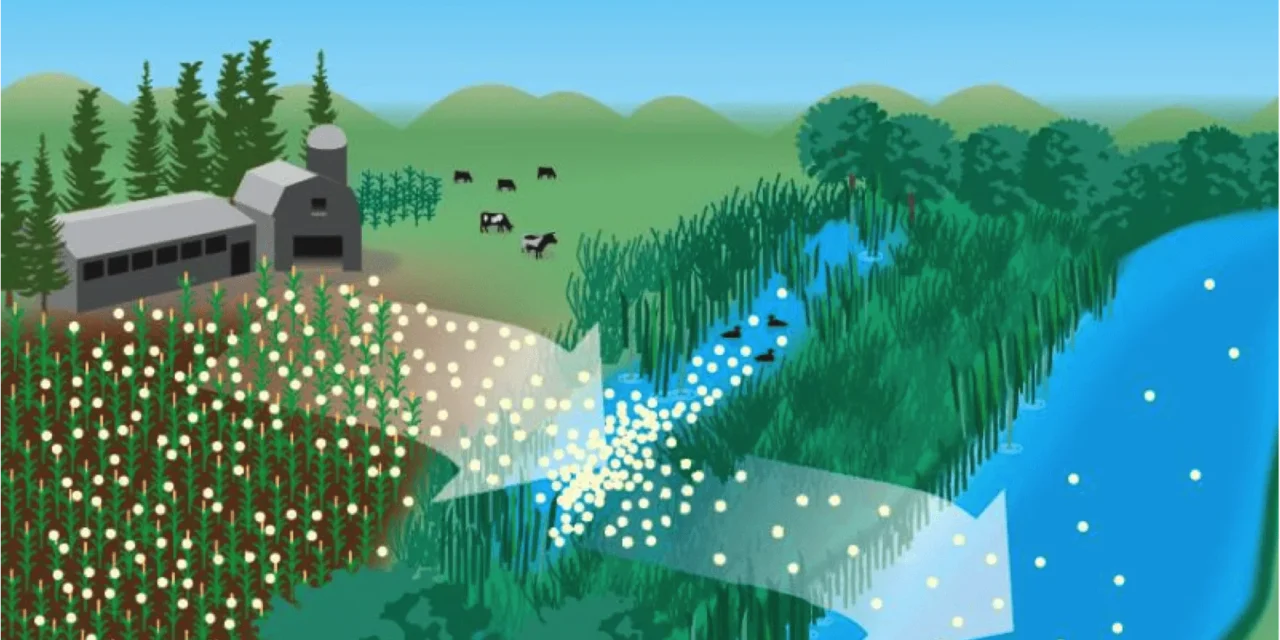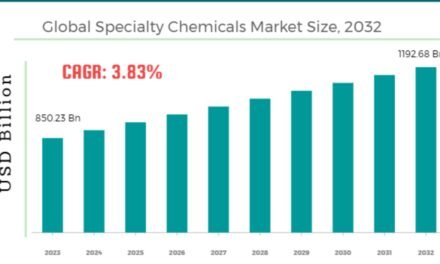The overuse of chemical fertilizers poses significant environmental risks, affecting soil health, water quality, air quality, and ecosystems. While these fertilizers play a critical role in boosting agricultural productivity, their excessive application has far-reaching consequences for the environment and human health. Below is an in-depth analysis of these risks:
1. Soil Degradation
- Loss of Soil Fertility:
- Continuous overapplication of chemical fertilizers depletes organic matter and disrupts soil microbial activity.
- Impact:
- Decline in soil structure and nutrient-holding capacity, reducing long-term agricultural productivity.
- Soil Acidification:
- Excessive use of nitrogen-based fertilizers (e.g., urea, ammonium nitrate) lowers soil pH, harming beneficial microbes and reducing nutrient availability.
- Soil Salinization:
- Overuse of fertilizers can lead to salt accumulation, particularly in poorly drained soils, making them unsuitable for crop growth.
2. Water Pollution
- Nutrient Runoff:
- Excess nitrogen and phosphorus from fertilizers leach into surface water during rainfall or irrigation.
- Impact:
- Eutrophication of lakes, rivers, and coastal waters, causing algal blooms that deplete oxygen and create “dead zones.”
- Example: The Gulf of Mexico dead zone, primarily caused by agricultural runoff from the Mississippi River.
- Groundwater Contamination:
- Nitrates from fertilizers seep into groundwater, contaminating drinking water sources.
- Health Risk:
- High nitrate levels in drinking water can cause methemoglobinemia (“blue baby syndrome”) in infants and increase cancer risks in adults.
3. Air Pollution
- Ammonia Emissions:
- Nitrogen fertilizers release ammonia gas, contributing to the formation of delicate particulate matter (PM2.5), which impacts respiratory health.
- Greenhouse Gas Emissions:
- Overuse of nitrogen fertilizers leads to the release of nitrous oxide (N₂O), a potent greenhouse gas with 300 times the warming potential of carbon dioxide.
- Impact:
- Contributes to climate change and stratospheric ozone depletion.
4. Biodiversity Loss
- Disruption of Aquatic Ecosystems:
- Eutrophication caused by fertilizer runoff results in the loss of aquatic biodiversity, including fish and other marine organisms.
- Impact on Soil Microbes:
- Overapplication of fertilizers reduces microbial diversity, which is essential for nutrient cycling and soil health.
- Impact on Terrestrial Biodiversity:
- Fertilizer drift from wind or water can damage nearby forests and natural habitats.
5. Crop and Food Quality Issues
- Imbalance in Nutrient Uptake:
- Excess nitrogen can lead to nutrient imbalances in crops, reducing their quality and shelf life.
- Example:
- Excess nitrogen promotes leafy growth but reduces fruit or grain quality.
- Residue Accumulation:
- Fertilizer residues may accumulate in crops, posing risks to human and animal health.
6. Economic and Resource Waste
- Inefficient Use of Fertilizers:
- Overapplication wastes resources and increases costs for farmers without corresponding yield improvements.
- Energy and Resource Footprint:
- The production of chemical fertilizers is energy-intensive, contributing to greenhouse gas emissions and resource depletion.
7. Contribution to Climate Change
- Nitrous Oxide Emissions:
- Overusing nitrogen fertilizers significantly contributes to global greenhouse gas emissions, accelerating climate change.
- Degraded Carbon Sequestration:
- Declining soil health reduces the soil’s ability to sequester carbon, exacerbating atmospheric CO₂ levels.
8. Public Health Concerns
- Waterborne Diseases:
- Contaminated water sources increase the risk of diseases linked to high nitrate concentrations.
- Air Quality Impacts:
- Ammonia and nitrous oxide emissions contribute to respiratory diseases and cardiovascular problems.
- Heavy Metal Contamination:
- Prolonged use of fertilizers can lead to the accumulation of heavy metals (e.g., cadmium, lead) in soils, which may enter the food chain.
9. Disruption of Natural Nutrient Cycles
- Nitrogen and Phosphorus Imbalances:
- Overapplication disrupts the natural nitrogen and phosphorus cycles, leading to inefficiencies in ecosystem functioning.
- Reduced Dependence on Natural Processes:
- Overreliance on chemical fertilizers discourages the use of natural soil amendments and crop rotations, which are vital for sustainable farming.
10. Cumulative and Long-Term Effects
- Persistent Soil Degradation:
- Overuse of fertilizers can cause irreversible damage to soil health, making recovery difficult and expensive.
- Ecosystem Collapse:
- Chronic eutrophication and biodiversity loss in water bodies may lead to the collapse of aquatic ecosystems.
Mitigation Strategies
- Adopting Precision Agriculture:
- Site-specific fertilizer application ensures nutrients are used efficiently, reducing waste.
- Integrated Nutrient Management (INM):
- Combining chemical fertilizers with organic amendments, biofertilizers, and crop rotations to maintain soil fertility sustainably.
- Enhanced Efficiency Fertilizers (EEFs):
- Using slow-release or stabilized fertilizers to minimize nutrient losses.
- Education and Awareness:
- Training farmers in best practices for fertilizer application and soil health management.
- Policy Interventions:
- Implementing regulations and incentives to encourage sustainable fertilizer use and reduce environmental harm.
Conclusion
Overusing chemical fertilizers presents significant environmental and public health risks, including soil degradation, water pollution, air quality deterioration, and biodiversity loss. However, adopting sustainable practices, precision agriculture technologies, and integrated nutrient management can mitigate these impacts while maintaining agricultural productivity. Balancing fertilizer use with environmental conservation is critical for ensuring long-term food security and ecological sustainability.
Hashtags
#OveruseOfFertilizers #ChemicalFertilizersImpact #FertilizerOveruseRisks #AgriculturePollution #FarmingAndEnvironment #SoilDegradation #WaterContamination #AirPollutionFromFarming #NutrientRunoff #EcosystemDamage #SustainableFarming #EcoFriendlyFarming #GreenAgriculture #ResponsibleFertilization #ClimateSmartAgriculture #ProtectOurSoils #HealthySoilsMatter #FarmingForFuture #StopOverFertilizing #SaveOurPlanet #SustainableAgriPolicy #FertilizerRegulations










